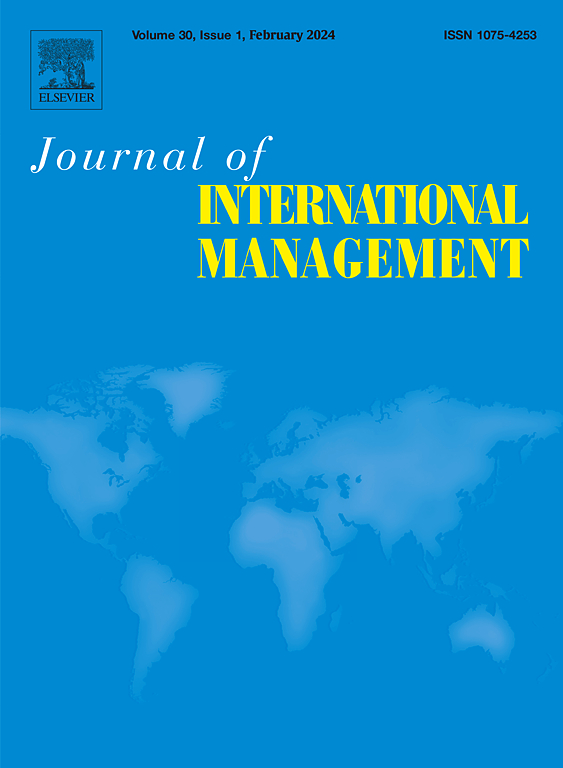新兴市场中小企业的国际化推动因素及其对国际化模式的影响:以土耳其汽车供应商为例
IF 4.9
2区 管理学
Q1 MANAGEMENT
引用次数: 0
摘要
新兴市场的中小企业在面临资源限制和制度障碍的情况下,越来越多地参与到国际化进程中来。但是,对于国际化支持程序如何影响这些上下文中的国际化模式的理解有限。我们研究了网络、战略创业和政府支持如何影响新兴市场中小企业国际化的速度、范围和规模。分析汽车供应商行业的土耳其中小企业,我们采用多案例研究方法来研究他们如何在制度二元性和市场波动的条件下调动内部和外部的推动因素。我们的研究结果表明,机构和商业网络加速了最初的市场进入,扩大了地理范围,而社交网络只起着边缘作用。战略企业家精神,特别是通过节俭创新、学习和联盟,使公司能够随着时间的推移扩大和维持国际业务。政府支助机制,例如贸易展览会补贴和出口赠款,在减少进入壁垒和扩大外国市场范围方面发挥关键作用,尽管它们对规模的影响仍然有限。本文章由计算机程序翻译,如有差异,请以英文原文为准。
Emerging market SMEs' internationalization enablers and their influence on internationalization patterns: The case of Turkish automotive suppliers
Small and medium-sized enterprises (SMEs) in emerging markets (EMs) are increasingly engaging in internationalization despite facing resource constraints and institutional barriers. However, there is limited understanding of how internationalization enablers influence internationalization patterns in these contexts. We investigate how networks, strategic entrepreneurship, and government support shape the speed, scope, and scale of internationalization among EM SMEs. Analyzing Turkish SMEs in the automotive supplier industry, we adopt a multiple case study approach to examine how they mobilize internal and external enablers under conditions of institutional duality and market volatility. Our findings reveal that institutional and business networks accelerate initial market entry and broaden geographic reach, while social networks play only a marginal role. Strategic entrepreneurship, particularly through frugal innovation, learning, and alliances, enables firms to expand and sustain international operations over time. Government support mechanisms, such as trade fair subsidies and export grants, play a critical role in reducing entry barriers and extending foreign market reach, although their effect on scale remains limited.
求助全文
通过发布文献求助,成功后即可免费获取论文全文。
去求助
来源期刊

Journal of International Management
MANAGEMENT-
自引率
9.80%
发文量
67
审稿时长
81 days
期刊介绍:
The Journal of International Management is devoted to advancing an understanding of issues in the management of global enterprises, global management theory, and practice; and providing theoretical and managerial implications useful for the further development of research. It is designed to serve an audience of academic researchers and educators, as well as business professionals, by publishing both theoretical and empirical research relating to international management and strategy issues. JIM publishes theoretical and empirical research addressing international business strategy, comparative and cross-cultural management, risk management, organizational behavior, and human resource management, among others.
 求助内容:
求助内容: 应助结果提醒方式:
应助结果提醒方式:


